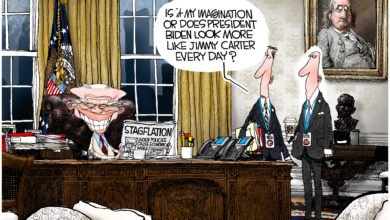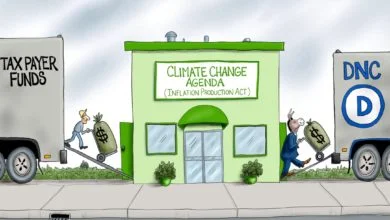Capitalism has gotten a bum rap from self-styled revolutionaries for being a supposed class system of exploitation that serves the interests of an economic oligarchy. But this is a fundamental misreading of capitalism, and dismisses several indispensable assumptions about the market system that are difficult to swallow for both socialists and corporatists. Rather than reflecting an ossified pyramidal society, free market capitalism leads to a dynamic and even tumultuous system that tends towards equilibrium through the process Joseph Schumpeter described as “creative destruction.”
Capitalism was a term invented by Karl Marx to describe the market system of exchange described by classical political economists like Adam Smith and David Ricardo. The term is heavily imbued with the notion that capital is a material object whose exchange objectifies and commoditizes the individuals engaged in the transaction. It has powerful emotional appeal to those who resent physical labor and would rather philosophize about the meaning of life than pick up a shovel and build some oft-lamented-for infrastructure. But the socialists’ pathos-driven ruminations don’t change the material realities of the economy, and the need to measure the scarce goods and services demanded by individuals who seek to use them as they see fit.
At this point, it should be fairly obvious that a market’s price system is both more transparent to the economic participants and more “democratic.” And just like in politics, democracy can be messy.
Imagine further how messy the capitalist process is if we consider tens of millions of people “voting” several times a day with their money, and how maddening it is for firms to try to keep track of it all. Now think about the disposition of politicians relegated to the economic sidelines to “referee,” but who actually have power at their disposal to get a piece of the action. And in a market economy, there’s a lot of action to get a piece of.
In developing markets, what the left refers to as “Wild West” economy, one can accumulate a sizable market share fairly quickly. At the advent of vast changes in technology, firms can also soon get in market-dominant positions. The temptation is great for firms to buy off politicians, who often need campaign cash in order to retain the perks of office. Simultaneously, the state’s power of taxation is a valuable tool of persuasion for politicians to bully companies who would rather concentrate on the market than Washington.
It is important here to note the prime mover in the relationship: state power. Various specific corporations seek to “capture” the government and use it to promote their ends because the government has the power and the popular permission to interfere in the economy. If people deny politicians this permission to intercede, then the career choice for those who desire to stay in office becomes much simpler: Keep their hands off, let people work and thrive to the extent they can, and they will have a job after the next round of elections. Of course, this would deglamorize “public service,” and also significantly reduce the odds of mysteriously becoming a millionaire within a few years of coming into office.
The point is that capitalism itself, strictly defined, is unpopular with large corporations that want to protect market share and ensure easy revenue by excluding competitors, and with power-hungry statists and leftists who want the activity of millions of individuals to be bent towards what they deem fit.
Capitalism is messy, but stable; it continuously eliminates the imprudent and penalizes the invaluable, rewards the dynamic and the responsive, and remorselessly holds accountable both firms and consumers. It is a perpetual economic revolution whose ongoing release of energies through creation and destruction prevents the buildup of more violent revolutionary forces, which result from individuals’ frustration at being stymied by those perceived to be less worthy.
Currently, the Democrat-led government is attempting to recreate revolutionary potential through central bank-driven capital destruction and excessive regulation, while politicians or their proxies point their wagging fingers at Wall Street, as if the banks’ most rapacious actions occurred in a vacuum. Rather, the greatest theft in the history of the American republic was led, accompanied by Democrat cheers, by the U.S. government itself.
You can call state intervention into the economy anything you want. But please, don’t call it “democratic.”






Unfortunately, despite propaganda regurgitation, you are sorely wrong in your assessment of our economic situation, and this is WHY.
Our main problem fundamentally regarding the current form of capitalism is that it has outgrown itself. Before the days of freight ships and trains, when almost all goods and services consumed were located and manufactured within a limited radius, the free markets ideology worked. Imports would wash with exports typically, but corruption always being a systemic problem in populated areas with significant hierarchy. Over the last century, or so, we have dismantled our already too large national economy under the systems requirement to value profit over all else including humanity.
Jobs lost to technology advances, industrial improvements, and mechanization continue to shrink opportunity for a middle class lifestyle, despite a growing population. It’s just numbers.
We are not in a recession or depression, we are in a decline. There will be no further cycles, as cycles require constants.
To continue with the system under a ‘global order’ would mean a continuing decline of America’s middle and lower classes until a global mean is met.
It is unfair to your friends, family, neighbors, and the people who sit next to you at church to continue to promote a system that is no longer equitable.
“I don’t know what to do, I don’t have all the answers. But what I do know is that I’m mad as hell, and I’m not going to take it anymore.”